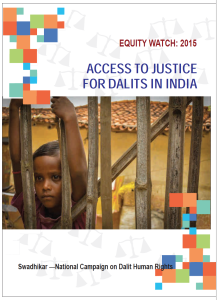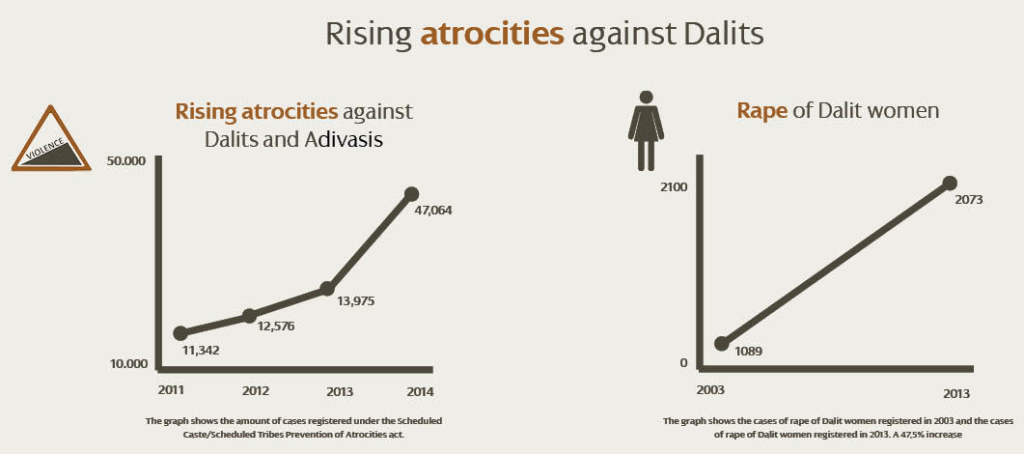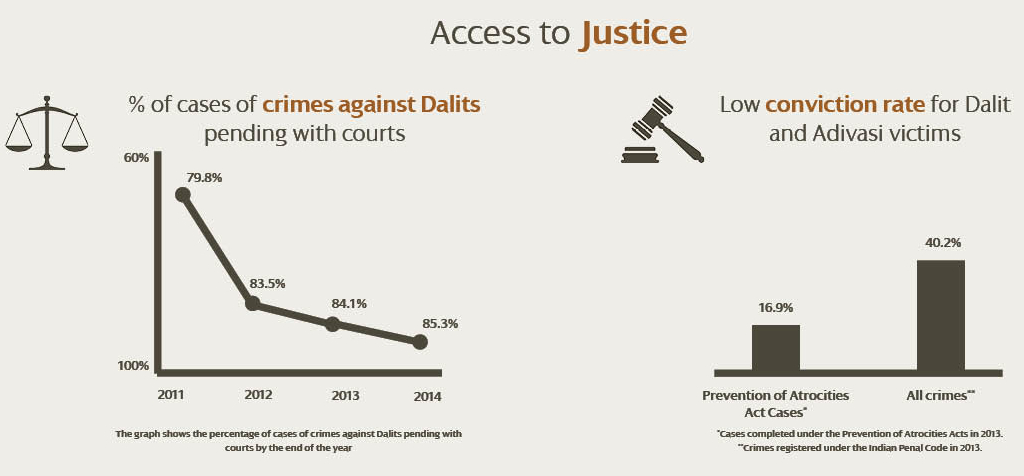Violence and atrocities against Dalits are rising in India and there is an urgent need to step up efforts to ensure justice for victims, finds a new report on access to justice released by the National Campaign on Dalit Human Rights (NCDHR), supported by Christian Aid and the European Union.
According to National Crimes Statistics presented in the report there has been a 19,4% increase in crimes against Dalits from the previous year. The number of cases registered under the Scheduled Caste (Dalits) and Scheduled Tribes (Adivasis) Prevention of Atrocities act has also risen every year since 2011, taking a leap in 2014 to 47,064 cases against 13,975 cases in 2013.
The report concludes that dominant castes in India are using violence against Dalits to reinforce the hierarchical caste related power structures and suppress Dalit rights assertions and claims.
“Dalit rights assertions in India have unleashed a wave of backlash violence and atrocities against Dalits. Violence is used as a tool to subjugate them and crush any form of resistance to protect and assert their dignity because as per the caste system, they were meant to only serve the communities placed on the so-called higher rungs of the caste hierarchy,” says Ramesh Nathan, General Secretary of the National Dalit Movement For Justice (NDMJ)-NCDHR
The report also analyses the rising violence against Dalit women, highlighting that rape cases registered against Dalit women have increased with over 47% since the previous decade. The report states that the data on Dalit women exemplifies how they are key victims of both systemic and structural discrimination and subjected to violence from dominant castes. Despite this reality, the report states that convictions in cases of violence against Dalit women are alarmingly low with one of the smaller studies cited finding the rate to be under 1%.
At the same time access to justice for Dalits is dismally low, for example, the report states that according to Government crime statistics, at the end of 2014, 85% crimes against Dalits filed under the Scheduled Caste/Scheduled Tribes Prevention of Atrocities Act (SC/ST PoA Act) were pending trial, while pending trial investigation is 25 % across the country. Convictions were awarded in only 28% of cases in 2014 that completed trial. Dalit human rights defenders, attempting to help victims of injustice, are found to suffer police violence and torture, intimidation, harassment and in some cases murder. The report stresses that the protection of Dalit human rights defenders is deeply lacking.
A number of key recommendations for turning these alarming figures around are offered in the report. These recommendations include crucial amendments to the existing legislation, ensuring budget allocations for implementation of the legislation to protect Dalits, and the Government taking targeted and committed action to demand that the law enforcement and judiciary live up to their duties and enforce the law.
As a bill amending the Prevention of Atrocities (PoA) act is currently pending adoption in the Rajya Sabha (upper house of the Indian Parliament) this report is yet another testament to the importance of this legislation. As Ramesh Nathan explains,
“This report is an attempt to bring out these facts with required data and information of newer forms of atrocities that are emerging over the years and the loopholes and poor implementation of the PoA Act, thereby bringing the amendments to this Act is a great need of the hour.”
Please download the full report “Equity Watch 2015 – Access to Justice for Dalits in India here



